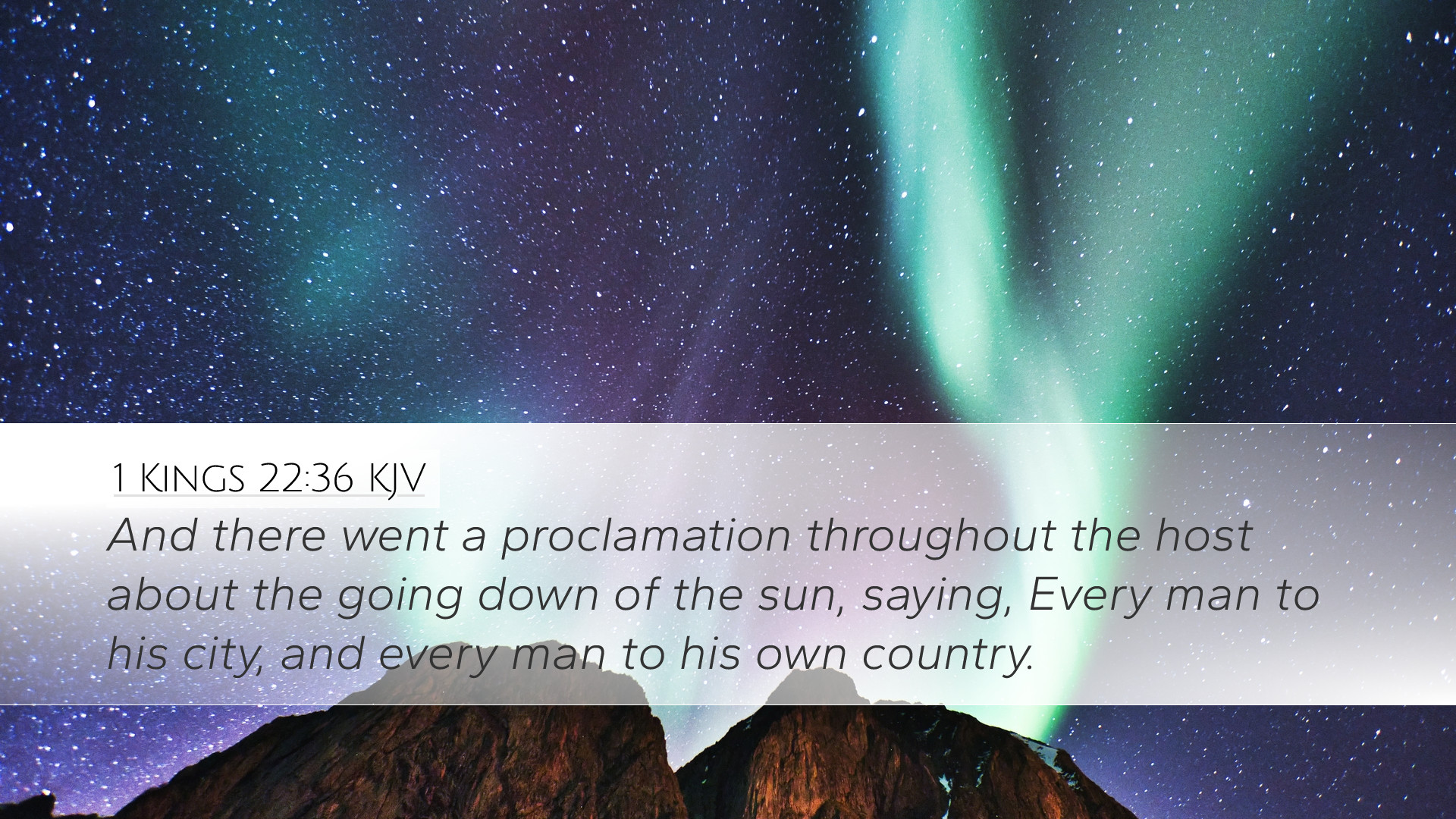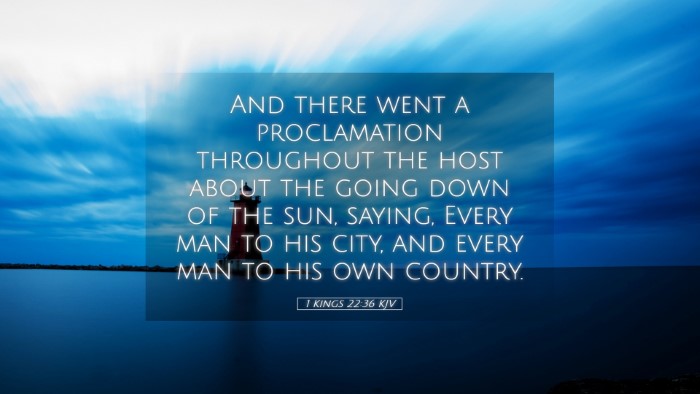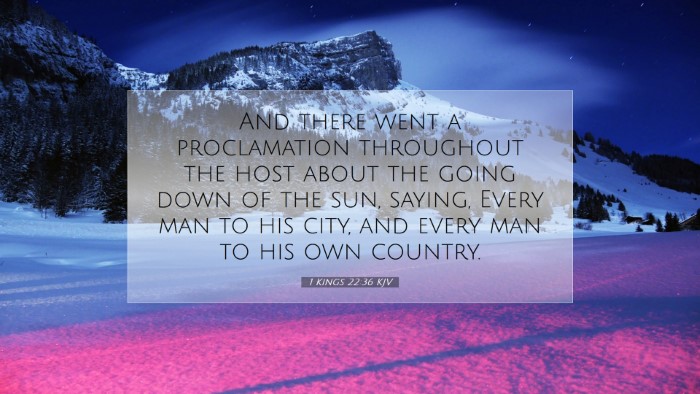Commentary on 1 Kings 22:36
1 Kings 22:36 states, "And there went a proclamation throughout the host about the going down of the sun, saying, Every man to his city, and every man to his own country." This verse serves as a pivotal moment in the narrative of the confrontation between King Ahab of Israel and his ally King Jehoshaphat of Judah against King Ben-Hadad of Syria. The verse encapsulates the climax of a battle that profoundly impacts the history of Israel and Judah, reflecting themes of divine judgment, the futility of wickedness, and the sovereignty of God.
Contextual Background
The broader context of 1 Kings 22 emphasizes the conflict between the prophets of God and the prophets of Baal. Ahab has been acutely aware of the prophetic warnings about his fate due to his wicked reign and connections with idolatrous practices. Jehoshaphat, although a king of Judah known for his efforts in reform, also sought alliance with Ahab, which led to spiritual compromise.
Interpretations from Public Domain Commentaries
Matthew Henry's Commentary
Matthew Henry notes that the proclamation at the end of the battle signifies a moment of withdrawal and reflection. The command for every man to return to his city symbolizes not just a physical retreat but also a spiritual and moral reckoning. Henry emphasizes God's sovereignty over the events that transpired and how the announcement reflects a divine judgment upon Ahab's wickedness. The focus on returning to one's home suggests a reorientation towards personal accountability and the consequences of moral choices.
Albert Barnes' Notes on the Bible
Albert Barnes elaborates on the implications of the proclamation. He states that the command reflects the conclusion of a failed alliance and the stark reality of the battle’s outcome. Each soldier’s return to his own city emphasizes individual responsibility and the grim consequences of following a misguided leader. Barnes points out that the message serves as a warning: the consequences of disobedience to God cannot be escaped by any earthly authority. He further adds that this moment signifies the end of Ahab's earthly ambition, indicating that when God's time comes, human decisions cannot alter the divine plan.
Adam Clarke's Commentary
Adam Clarke interprets the verse by highlighting the moment as a culmination of Ahab's defiance against the prophecy of Micaiah. Clarke stresses the significance of the timing of the proclamation, coinciding with the setting sun, symbolizing the end of Ahab's reign and the approaching darkness that now looms upon Israel. Clarke discusses how the phrase "every man to his city" serves to remind us of the urgency to return to God’s commandments for guidance rather than succumbing to wicked alliances. It symbolizes God’s ultimate call for His people to separate themselves from unholy influences.
Theological Implications
The proclamation at sunset in 1 Kings 22:36 invites deep theological reflection. It signifies the cessation of conflict and the beginning of conscience turmoil for those who participated in a flawed campaign. The themes of judgment, accountability, and divine sovereignty are interwoven, reminding God’s people to remain faithful despite the allure of power and influence that may lead them astray.
Lessons for Today’s Believers
- Divine Justice: This verse illustrates the inevitability of divine justice. God’s oversight remains in all circumstances, and His judgment will come to pass regarding wickedness and disobedience.
- Transition and Reflection: Just like the soldiers were called to return home, believers are prompted to reflect on their lives and the paths they are taking. Are they aligned with God’s will, or are they caught in disastrous alliances?
- Importance of Prophetic Voices: The contrast between the true prophet Micaiah and the false prophets is stark. It underscores the importance of heeding true godly counsel in leadership and personal decisions.
- Return to God: The notion of returning to one’s city is deeply connected to the call for repentance and a return to God’s favor, urging the faithful to forsake the ways that distract from His purpose.
- Agency and Responsibility: Each man’s return to his city highlights personal responsibility in following God. Believers are to act on their convictions and be accountable for their faith journey.
Conclusion
1 Kings 22:36 serves as a sobering reminder of the consequences of disregarding divine counsel and pursuing worldly alliances. It invites us to maintain vigilance in our spiritual journeys and to prioritize our relationship with God above all. The insights from renowned commentaries deepen our understanding and encourage a collective return to the principles that govern faithful living.


